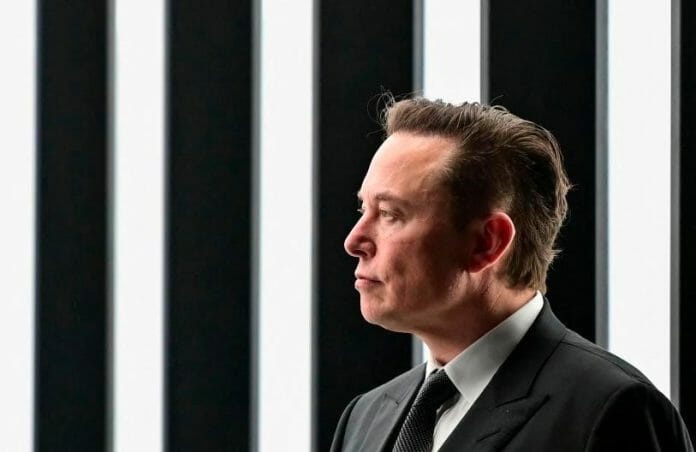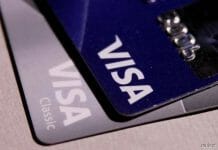Tesla Inc Chief Executive Elon Musk testified yesterday that he expected strong financial support when he tweeted that he would take the electric car maker private in 2018, but admitted he lacked specific commitments from potential backers.
Musk ended three days on the stand defending against claims that he defrauded investors by tweeting on August 7, 2018, that he had “funding secured” to take Tesla private.
The trial in San Francisco federal court is testing whether the world’s second-richest person can be held liable for his sometimes impulsive use of Twitter.
Musk told a jury that he could have drawn upon several sources of financing to take Tesla private, from existing shareholders like Oracle Corp ORCL.N co-founder Larry Ellison to Saudi Arabia’s sovereign wealth fund or his own fortune.
“Funding was absolutely not an issue,” Musk said. “It was quite the opposite.”
Musk, however, acknowledged he did not have binding agreements with investors, leaving it to the jury to decide if he misled shareholders.
Musk remained generally subdued and calm during his testimony, which began on Friday. Near the end of nearly nine total hours on the stand, he became more combative, making comments about the class action law firm that brought the case. His comments were struck from the record by US District Judge Edward Chen.
Tesla’s stock surged after Musk’s 2018 tweet about the US$420 per share price, which was a premium of about 23 per cent to the prior day’s close, only to fall as it became clear the buyout would not happen. Investors say they lost millions of dollars as a result.
A jury of nine will decide whether the Tesla CEO artificially inflated the company’s share price by touting the buyout’s prospects, and if so, by how much.
Musk testified on Tuesday in response to questions from his lawyer Alex Spiro that his tweet was intended to inform investors about his interest in taking Tesla private.
Musk said he had already discussed his interest with the Tesla board and Saudi Arabia’s sovereign wealth fund, the Public Investment Fund, and he feared it would leak to the media.
“I had no ill motive,” he said. “My intent here was to do the right thing for shareholders.”
The Saudi fund did not immediately respond to a Reuters request for comment.
Musk told the jury he decided to drop the idea of taking the company private after getting feedback from shareholders.
“After talking to a number of investors, especially the smaller investors, they said they would prefer a Tesla that remained public and I felt it was important to be responsive to their wishes,” Musk testified.
The jury was shown notes and documents from a board meeting in the days after the tweet at which Goldman Sachs GS.N, which was working with Musk on the proposed deal, had indicated there would be more than enough funding to take the company private.
Goldman Sachs did not immediately reply to a request for comment.
But when questioned by Nicholas Porritt, a lawyer for the investors, Musk said he did not have binding agreements for financing from any interested party.
Musk repeatedly resisted the “yes” or “no” responses sought by Porritt about discussions over funding pledges by the Saudi fund, prompting the judge at one point to help with the questioning.
“Was a specific number discussed, not concepts?” Chen asked.
“Not a specific number,” Musk said.
On Monday, Musk said he could have financed the deal by selling his stake in SpaceX, the aerospace company where he is also chief executive officer. He has also said he believed financing had been pledged by Saudi representatives of the Public Investment Fund, before they backpedaled.
The trial is scheduled to continue into next week with testimony by Tesla board members and experts.
Tesla Invests $3.6 Billion To Expand Factories
Tesla Inc said on Tuesday it would invest more than $3.6 billion to expand its Nevada manufacturing complex with two new factories, including the first facility to mass produce its long-delayed Semi electric truck.
The other factory will make new battery cells, called 4680, and have the capacity to make enough batteries for 2 million light-duty vehicles annually. Together, the plants will employ about 3,000 people.
The Elon Musk-led company’s existing complex in the city of Sparks makes lithium-ion batteries, vehicle parts and other products such as Powerwall, a power backup system for consumers.
Unveiled in 2017, the Semi was initially expected to go into production in 2019 but its first delivery was delayed to December, when Musk handed a vehicle to PepsiCo. The move marked Tesla’s first foray into the trucking business.
The 18-wheeler truck has a range of 500 miles on a single charge and can carry 81,000 pounds including the cargo. It may qualify for tax credits of $40,000 offered for clean commercial vehicles under the Inflation Reduction Act, which was signed into law in August.
Tesla Chair Robyn Denholm said in November that Tesla might produce 100 Semis in 2022, but the company did not disclose any figure in its fourth-quarter production report.
The EV maker aims to produce 50,000 of the trucks in 2024, Musk had said on a post-earnings call in October.
PepsiCo plans to roll out 100 Semis in 2023. Other customers for the truck include Brewer Anheuser-Busch, United Parcel Service Inc and Walmart Inc.
The Semi will face competition from Daimler’s Freightliner, Volvo and Nikola Corp, which have also rolled out their own battery-powered trucks.









